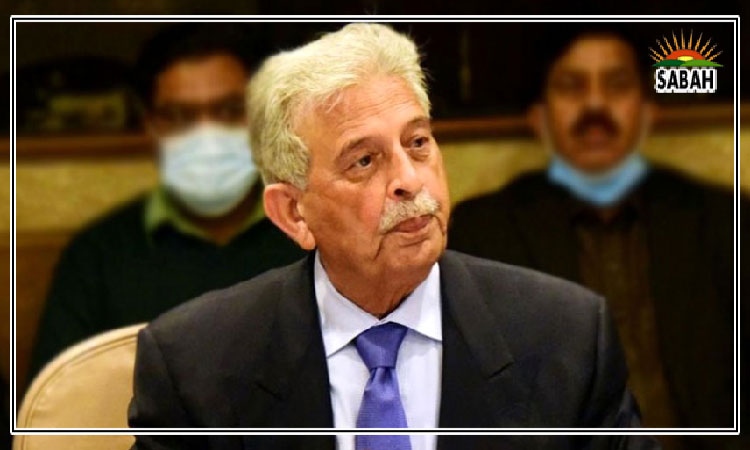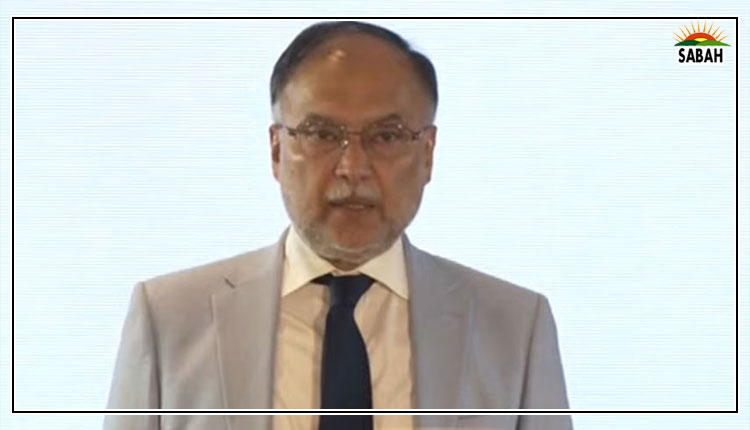Whither health & environment?…Zulfiqar A Bhutta | Zafar Mirza | Maha Qasim | Ali Tauqeer Sheikh | Jai Das
THE fact that the health and climate ministries were not included in the first round of cabinet oath-taking, is a sad reflection on the priority given to the well-being of the poor and climate-vulnerable population. It reveals unfortunate policy short-sightedness given the importance of the social determinants of health, climate change, and development. The cost of inaction is too high, something the agreement with the IMF will need to recognise.
Pakistan has not recovered from the devastating floods of 2022, with losses exceeding $30 billion. Over 32 million people were affected, 2.1m houses and more than 2,000 health facilities destroyed, of which only a fraction have been rebuilt. Of the $10bn pledged for rebuilding in January 2023, relatively little has reached the populations in greatest need, underscoring the enormous and long-term impacts of such disasters.
The unseasonal rains and snowfall in the north of the country in the last few weeks have played havoc with farmers and transport systems underscoring the fact that the face of climate change isnt just extreme heat.
A recent analysis by scholars at the Aga Khan University underscores the importance of the steady increase in surface temperature and reduction in subsoil moisture as critical contributing factors to early childhood wasting and stunting. Some of the impacts of climate change on poor, vulnerable populations, especially pregnant women, are likely considerable, with notable gender inequality.
The worsening human development crisis must be the centrepiece of all state reforms.
Much has happened on this front, with Pakistan leading some of the global efforts to constitute equitable allocation of resources, such as with the Loss and Damage Fund, for low- and middle-income countries. However national and provincial policies around investments for mitigating the effects of climate change and promotion of resilience or adaptation remain nascent. Funds from the National Finance Commission Award remain in the provincial capitals and are not allocated to district levels where they are needed the most.
Development of a framework for action for climate-resilient health systems by the federal Ministry of National Health Services, Regulation and Coordination and the constitution of climate-risk screening for development projects at the level of the federal Ministry of Planning, Development and Special Initiatives are welcome steps but need to be matched by concrete action and protection of investments.
The health sector is both a contributor to carbon emissions and a victim of climate change, and not just through disasters and impact on services. The current and projected energy crises have huge implications for the functionality of health facilities and outreach services. Decarbonisation would require investments in alternative energy sources and reduction in wastage. Solarisation of the health facilities is an easy and a low-hanging fruit, but investments in climate-resilient health infrastructure and health facilities would require considerable resources. Much can be done in the interim by indigenous solutions and structural modification.
The ambitious plans for reforestation and tree plantation, on hold for a couple of years now, are important building blocks for ecosystem-based approaches to public health and well-being and must be restarted. Like so many of Pakistans problems in addressing the challenges, the solutions lie within and need to be based on existing programmes and resources.
Having the most polluted city in the world as a capital, the new Punjab government has rightly declared cleaning the environment and reducing the omnipresent crisis of air quality and smog a priority. This needs to be accompanied by clear, actionable and long-term strategies and financial allocations for implementation.
Apart from the huge economic impact, the environmental determinants of health are a major contributor to long-term ill health and non-communicable diseases, and the cost of inaction is hugely greater than investments for prevention and mitigation.
Other countries have managed to clean seemingly inexorable issues of air quality at scale. The case of Mexico City, with its natural disadvantage of altitude and location, is a case in point. Voted the most polluted city in the world some four decades ago, it has now disappeared from the list of most polluted cities. Improving air quality in Pakistan can have notable health benefits. The World Bank has estimated that the benefits of cleaner fuels on health in Pakistan are easily 50 to 70 per cent greater than every dollar spent.
So, what can the new government do, given that it has a huge opportunity to reset the path to solid development and economic reconstruction? First and foremost, effectively arresting and turning the ongoing and worsening human development crisis must be the centrepiece of all state reforms. Also, focusing on the social sectors as a primary investment and not an afterthought and recognising that sound health, nutrition and environment are fundamental to development and sustainability of economic growth.
The 10-point agenda put forward by the previously mentioned framework for action for climate-resilient health systems provides a robust roadmap. As a precondition though, a paradigm shift is required to promote intersectoral action. The prime minister must establish and lead a broad-based ministerial committee on health and climate change. The committee should appropriate top experts from the water, education, health, climate, and energy sectors. This group should regularly monitor the implementation of the action points of the framework: leadership and governance; health workforce; vulnerability capacity and adaptation assessments; integrated risk monitoring and early warning; health and climate research; climate-resilient sustainable technologies and infrastructures; management of environmental determinants of health; climate-informed health programmes, emergency preparedness and disaster-risk management; and climate and health finance.
Pakistans Nationally Determined Contributions commitments include the need to address vector-borne diseases, nutrition, respiratory and cardiovascular diseases due to deteriorating air quality, heatwaves, injuries from extreme weather events, wildfires, and damage to the healthcare infrastructure. These health threats are identified as critical areas requiring priority actions to mitigate the impacts of climate change on public health.
Its time for the new government to recognise that the Paris Agreements emphasis on public health underscores the linkages between climate change and human well-being. It underscores the significance of addressing health concerns within the framework of climate action. Our NDC commitment and downstream action must be the centrepiece of policy and must not await suo motu notices by the Supreme Court.
Courtesy Dawn












